NYS WRITERS INSTITUTE
HOME PAGE
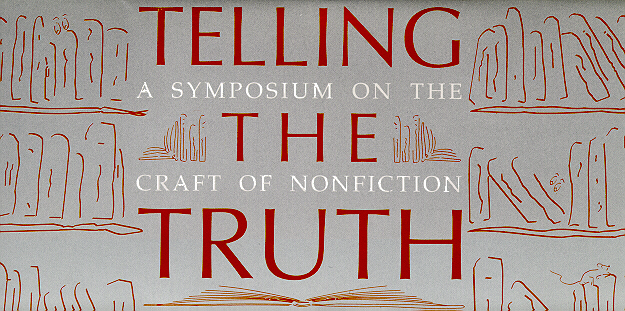
April 19-20-21, 1991
Page Hall, 135 Western Avenue
Albany, New York
Symposium Panelists
Kurt Andersen - Spy co-editor, author of The Real Thing and Tools of Power, editor of Laughing Matters, architecture critic for Time
Elijah Anderson - Professor of Sociology at the University of Pennsylvania, author of Streetwise: Race, Class and Change in an Urban Community
Ken Auletta - author of The Streets Were Paved with Gold, The Underclass and Greed and Glory on Wall Street, writer for The New Yorker and New York Daily News
Taylor Branch - author of Parting the Waters: America in the King Years 1954-63 and Blind Ambition, former staff member of The Washington Monthly, Harper's and Esquire
Alan Brinkley - Professor of History at City University of New York and winner of the American Book Award for History for Voices of Protest: Huey Long, Father Coughlin, and the Great Depression
Connie Bruck - financial writer for The New Yorker, recipient of the John Hancock Award for Excellence in Business and Financial journalism, author of The Predators' Ball
Maureen Dowd - White House correspondent for The New York Times
James Fallows - Washington editor for The Atlantic, winner of the American Book Award for National Defense, author of More Like Us
Timothy Ferris - author of The Red Limit, Galaxies, a 1981 American Book Award nominee, Coming of Age in the Milky Way and Spaceshots: The Beauty of Nature Beyond Earth
![]() Frances FitzGerald - winner of the Pulitzer Prize for contemporary affairs writing and the National Book Award for Fire in the Lake: The Vietnamese and the Americans in Vietnam, author of America Revised and Cities on a Hill
Frances FitzGerald - winner of the Pulitzer Prize for contemporary affairs writing and the National Book Award for Fire in the Lake: The Vietnamese and the Americans in Vietnam, author of America Revised and Cities on a Hill
Eric Foner - DeWitt Clinton Professor of History at Columbia University and author of Nothing but Freedom, Reconstruction: America's Unfinished Revolution and A House Divided: America in the Age of Lincoln
Ian Frazier - essayist and journalist, author of Dating Your Mom, Nobody Better, Better than Nobody and Great Plains
James Gleick - a regular contributor to The New York Times Magazine, author of Chaos: Making a New Science, a 1987 National Book Award nominee
Doris Kearns Goodwin - Lyndon Johnson biographer, author of Lyndon Johnson and the American Dream and The Fitzgeralds and the Kennedys: An American Saga
Mary Gordon - author of Final Payments, The Company of Women, Men and Angels, Temporary Shelter and The Other Side
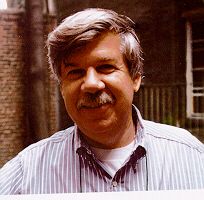 Stephen Jay Gould - Harvard University professor and evolutionary biologist, winner of the American Book Award for The Panda's Thumb: More Reflections in Natural History and the National Book Critics Circle Award for The Mismeasure of Man, author of An Urchin in the Storm and Wonderful Life
Stephen Jay Gould - Harvard University professor and evolutionary biologist, winner of the American Book Award for The Panda's Thumb: More Reflections in Natural History and the National Book Critics Circle Award for The Mismeasure of Man, author of An Urchin in the Storm and Wonderful Life
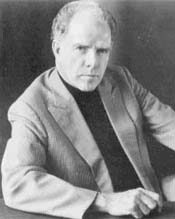 William Kennedy - winner of the Pulitzer Prize, National Book Critics Circle Award and finalist for the PEN/Faulkner Award for Ironweed, author of Legs, Billy Phelan's Greatest Game, The Ink Truck and Quinn's Book
William Kennedy - winner of the Pulitzer Prize, National Book Critics Circle Award and finalist for the PEN/Faulkner Award for Ironweed, author of Legs, Billy Phelan's Greatest Game, The Ink Truck and Quinn's Book
Tracy Kidder - winner of the Pulitzer Prize and American Book Award for The Soul of a New Machine, author of The Road to Yuba City, House and Among Schoolchildren
Jane Kramer - winner of the American Book Award for The Last Cowboy, author of Europeans and Unsettling Europe, writer for The New Yorker
Nicholas Lemann - national correspondent for The Atlantic and author of The Promised Land
Patricia Limerick - Associate Professor of History at the University of Colorado at Boulder, author of The Legacy of Conquest: The Unbroken Past of the American West and Desert Passages: Encounters with the American Deserts
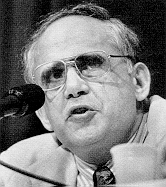 J. Anthony Lukas - winner of the Pulitzer Prize, American Book Award, and National Book Critics Circle Award for Common Ground: A Turbulent Decade in the Lives of Three American Families, author of Don't Shoot--We are Your Children! and Nightmare: The Underside of the Nixon Years
J. Anthony Lukas - winner of the Pulitzer Prize, American Book Award, and National Book Critics Circle Award for Common Ground: A Turbulent Decade in the Lives of Three American Families, author of Don't Shoot--We are Your Children! and Nightmare: The Underside of the Nixon Years
 Norman Mailer - winner of the Pulitzer Prize and National Book Award for Armies of the Night, author of Miami and the Siege of Chicago, The Naked and the Dead, Why Are We in Vietnam? The Executioner's Song and the forthcoming novel Harlot's Ghost
Norman Mailer - winner of the Pulitzer Prize and National Book Award for Armies of the Night, author of Miami and the Siege of Chicago, The Naked and the Dead, Why Are We in Vietnam? The Executioner's Song and the forthcoming novel Harlot's Ghost
Alice Mayhew - Vice President and Editorial Director for Simon & Schuster
David McCullough - winner of the National Book Award for The Path Between the Seas: The Creation of the Panama Canal, 1870-1914 and Mornings on Horseback, narrator of the ten-part PBS series The Civil War
Bill McKibben - freelance journalist and former staff writer for The New Yorker, author of The End of Nature
Richard Rhodes - winner of the Pulitzer Prize, National Book Critics Circle Award and the National Book Award for The Making of the Atomic Bomb, author of Farm and A Hole in the World
Mark Singer - staff writer for The New Yorker, author of Funny Money and Mr. Personality
Rebecca Sinkler - editor of The New York Times Book Review, former editor of The Philadelphia Inquirer Book Review
Jean Strouse - winner of the Bancroft Prize in American History and Diplomacy, author of Alice James, A Biography
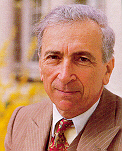 Gay Talese - author of The Kingdom and the Power, Honor The Father, Thy Neighbor's Wife and Fame and Obscurity
Gay Talese - author of The Kingdom and the Power, Honor The Father, Thy Neighbor's Wife and Fame and Obscurity
Calvin Trillin - syndicated columnist, staff writer for The New Yorker and author of With All Disrespect, If You Can't Say Something Nice, Travels with Alice and Enough's Enough
Geoffrey Ward - author of Lincoln's Thought and the Present, Treasures of the Maharajahs, Young Franklin Roosevelt, 1882-1905, A First-Class Temperament and The Civil War (companion volume to the PBS series)
William Whitworth - editor for The Atlantic, author of Naive Questions about War and Peace
Juan Williams - Washington Post columnist and reporter, author of Eyes on the Prize: America's Civil Rights Years 1954-1965
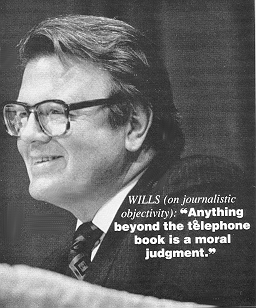 Garry Wills - winner of the National Book Critics Circle Award for Inventing America, author of Nixon Agonistes, Reagan's America and Under God
Garry Wills - winner of the National Book Critics Circle Award for Inventing America, author of Nixon Agonistes, Reagan's America and Under God
This event, which will take place over a most intense three days, has been a long time in the making. For several years, each of us separately had been thinking about and struggling with the fascinating and vexing problems presented by the ambiguous boundaries between fiction and history, journalism and autobiography. Through a series of friendly conversations, we came to the conclusion that many nonfiction writers (journalists, historians, biographers, etc.) were also deeply concerned with these and other problems inherent in finding and writing the truth. We discovered that writers of nonfiction wanted to have a forum to discuss with editors, critics, the general public and themselves what they have been doing well and not so well. Thus began the shaping of this very exciting and timely three-day symposium which is designed to examine and disseminate information on the myriad of practical, professional and ethical problems associated with the writing of nonfiction.
Through a series of panel discussions, some of the most renowned nonfiction practitioners of our time will engage in open and substantive dialogue on such questions as:
- How do you find and recognize the truth?
- Whose truth is being told?
- Should the truth always be told?
- What choices are made in the telling of the truth?
- What are writers' obligations to history, to sources, and to the public when writing nonfiction?
- Can fiction be used to tell the truth?
As we approach the 21st Century, it has never been more urgent or appropriate to critically evaluate the current status and possible future of nonfiction writing. This symposium will not issue a definitive resolution on "the truth." But, by assembling an extraordinary group of writers and critics, we will establish a dialogue not only on the possibilities of the craft of writing nonfiction, but on the telling of the truth in public discourse in general.
Symposium Organizers
William Kennedy | Nicholas Lemann | J. Anthony Lukas | Tom Smith
Schedule
Friday, April 19
8:00 pm | Telling Stories, Telling Truth
J. Anthony Lukas, Moderator, Frances FitzGerald, Gay Talese, William Whitworth, Garry Wills
Saturday, April 20
9:00 am - 11:00 am | Who Owns History?
Alan Brinkley, Moderator, Taylor Branch, Eric Foner, Patricia Limerick, Geoffrey Ward
11:00 am - 11:15 am | Break
11:00 am - 1:15 pm | Words on Things
James Gleick, Moderator, Timothy Ferris, Stephen Jay Gould, Bill McKibben, Richard Rhodes
1:15 pm - 2:30 pm | Lunch Break
2:30 pm - 4:30 pm | Writing on Power
Jean Strouse, Moderator, Connie Bruck, Doris Keams Goodwin, David McCullough, Garry Wills
4:30 pm - 8:00 pm | Dinner Break
8:00 pm | Is Fiction Truer than Truth?
Rebecca Sinkler, Moderator, Mary Gordon, William Kennedy, Norman Mailer
Sunday, April 21
9:30 am - 11:30 am | Anything for a Laugh
Mark Singer, Moderator, Kurt Andersen, Maureen Dowd, Ian Frazier, Calvin Trillin
11:30 am - 12:45 pm | Lunch Break
12:45 pm - 2:45 pm | Writing on Ordinary People
Nicholas Lemann, Moderator, Elijah Anderson, Tracy Kidder, Jane Kramer, Juan Williams
2:45 pm - 3:00 pm | Break
3:00 pm - 5:00 pm | Truth and Consequences
Nicholas Lemann, Moderator, Ken Auletta, James Fallows, Alice Mayhew
Transcripts of the Event
Transcript of Writing on Power
Transcript of Words on Things, PART I
Transcript of Words on Things, PART II
Acknowledgments
For additional information, contact the Writers Institute at 518-442-5620 or online at https://www.albany.edu/writers-inst.